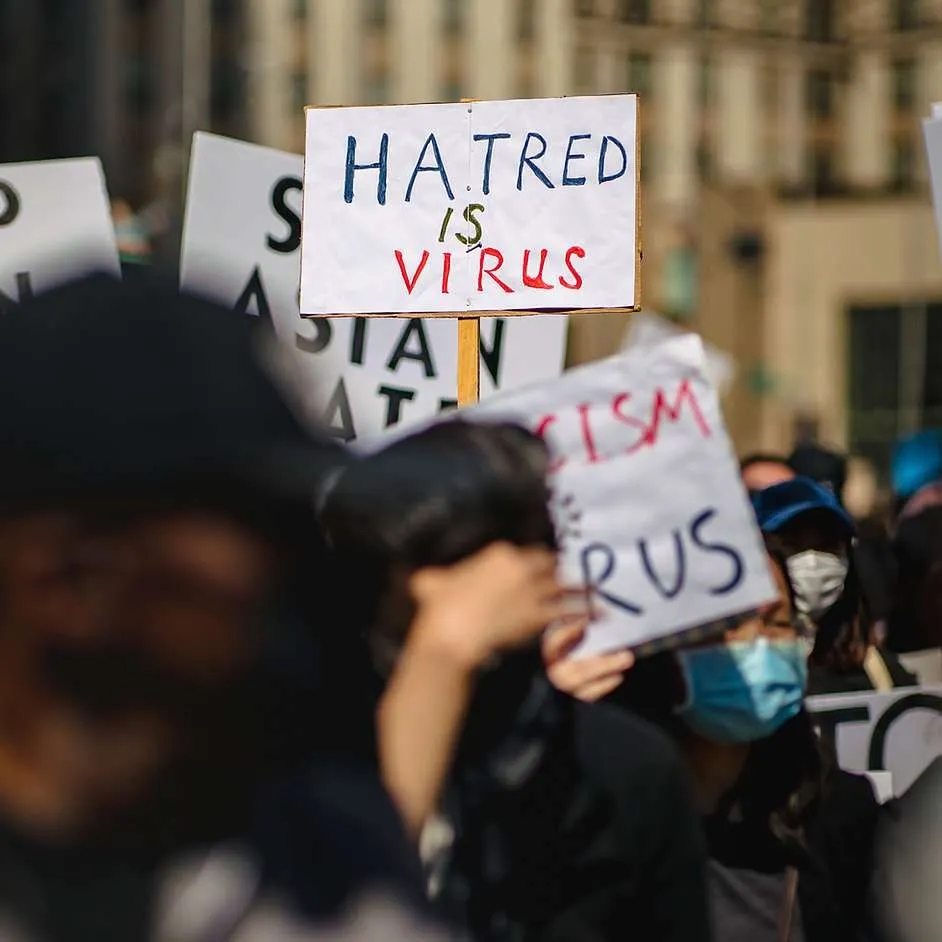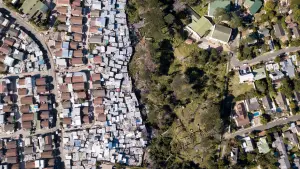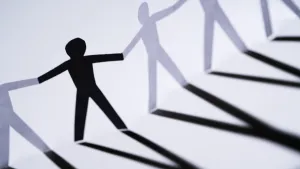Editorial Note:
This article about anti-asian racism is being published on behalf of Applied Worldwide’s 2021 student essay competition. Students were prompted to respond to the question, “Why is sociology important?” We have awarded 17 finalists from all over the world, and will publish these essays over the next several weeks. This essay was written by Elaine Tran, a student at MacEwan University in Canada. This essay received a second place award. Overall, we had a really great turnout and would like to thank everyone who submitted an essay. We received a wide variety of creative interpretations and responses, so browse our essay directory!
Elaine Tran on Anti-Asian Racism
“Our visions begin with our desires.”
Audre Lorde
The emergence of the COVID-19 pandemic propelled society into a frenzy of emotions, eliciting feelings of fear, panic, and uncertainty of the future. Thus, influencing economies, food systems, public health, education, and travel, the COVID-19 pandemic has had diverse implications – all of which can be studied sociologically. In the current context, on a global scale, most individuals have implemented safety measures in fear of the virus.
Though, for some, COVID-19 is not the only threat to their safety. In other words, what do you do when the virus is not the only deadly threat to your life? For members of the Asian diaspora, the COVID-19 pandemic has cultivated an environment of heightened racial discrimination, harassment, and violence against them. While writing this very essay, I was notified of a mass shooting in the United States targeting Asian-owned massage parlours which resulted in the murder of 8 people, 6 of whom were Asian women, fueling further anti-Asian racism, xenophobia, and misogyny (Holcombe & Andone, 2021).
Anti-Asian Racism During COVID-19
In an unprecedented time, racism is a challenge no one should endure simply because of who they are – let alone die from. As an Asian woman who has been directly and indirectly impacted by racism, and who is currently pursuing research on race and racism from a sociological lens, I am compelled to respond to why sociology is important through the provision of pressing and even personal examples.
Therefore, the alarming levels of anti-Asian racism and xenophobia amidst the COVID-19 pandemic should be studied through a sociological lens to better understand our social world, to educate others and start conversations, and to seek solutions for an improved social world.
Racialization and COVID-19
Sociologists use concepts, definitions, and theories as building blocks to examine the social world. The concept of “racialization” can help us to understand the increased levels of anti-Asian racism and xenophobia amidst the COVID-19 pandemic. Defined as “the extension of racial meaning to a previously racially unclassified relationship, social practice, or group,” (Omi & Winant, 1986, p. 111) racialization is a dynamic process that “poses social, economic, and political consequences” (Symbaluk & Bereska, in press).
Historically, an “us vs. them” dichotomy has been used in times of widespread disease outbreak (Harris, 2008; Muzzatti, 2005). In 19th century Canada, the term “yellow peril” was used to “compare the presence of Chinese people to that of the plague” (Leung, 2008, p. 137). In hindsight, the discourse of the yellow peril contributed to further racialization of Chinese Canadians and Chinatowns as disease-ridden, filthy, and unsanitary, resulting in increased monitoring and regulation of Chinatowns under the guise of public health concerns (Leung, 2008).
Historical Racialization of Chinese-Canadians
Moreover, discourses of “diseased foreigner[s]” has been used to ostracize Chinese Canadians historically by connecting claims of primitivity and animal to human disease transmission (Sontag, 1989, as cited in Muzzatti, 2005). Racialized social constructions continue to persist and have now been widely applied to communities racialized as Asian, not just Chinese. This spread has resulted in adverse consequences, including racial discrimination, as evident in the recent increase in hate messages, death threats, and associated declines in business in Toronto’s Chinatowns (CBC News, 2021).
The historical racialization of Chinese Canadians and their communities has evolved to other Asian communities as well, with the recurring sentiment that Asian people and their communities are not as valued or welcomed in Canadian society.
Sociological Solutions to Anti-Asian Racism
Moving forward, sociology also provides the building blocks to educate others using sociological research methods to provide empirical evidence for opening conversations. Additionally, Project 1907 and Act2EndRacism are two non-profit organizations dedicated to raising awareness of and eliminating anti-Asian racism. Project 1907 launched a Racism Reporting Centre, collecting self-report information on hate crimes against Asian individuals.
Using a quantitative approach, researchers at Project 1907 presented facts and figures used to describe anti-Asian racism in an effort to raise awareness and facilitate dialogue. Similarly, Act2EndRacism launched a video movement against anti-Asian racism and xenophobia to share stories about racism that provide insight into the impact of racism on individuals and communities. Furthermore, using different approaches, sociological research can be applied to educate others and open conversations surrounding pressing social issues and problems.
Finally, sociology can provide the building blocks to seek solutions. For me, the study of sociology in my undergraduate career has equipped me with the building blocks to seek solutions for a better social world through my honours research, which centralizes on anti-Asian racism, COVID-19, and media. Specifically, I am using critical discourse analysis to examine local and national Canadian news media to understand how these discourses compare to each other and connect to racism in Canada.
Moving Forward
I plan to continue the conversation about the nature of racism in Canada, especially in relation to Asian Canadians. Moreover, I recently launched a project called You Are Welcome Here aimed at sharing stories of community, joy, and resistance with a focus on Asian voices. However, regardless of the way in which solutions are sought, they can be done so through the study and application of sociology.
Sociology’s application to everyday life is what makes it so important for our understanding of society and what provides the impetus for social change. Not only that, it provides us with a way to understand, to educate others, to engage in conversation, and to seek solutions. As Audre Lorde proclaimed in the opening quote, “Our visions begin with our desires.”
When I was young, I desired nothing more than to live an authentic life of joy, prosperity, and respect. I wanted to live in a world where I am seen, heard, and valued for who I am, not for who I am perceived to be based on racialization. I still desire these things. But now, as an Asian woman amidst the COVID-19 pandemic, I understand that I can work as a sociologist to achieve these objectives – not only for myself – but collectively for the members of my community globally.
Resources on Sociology and Anti-Asian Racism
Act2EndRacism. (n.d.). Home [YouTube Channel]. https://www.youtube.com/channel/UCkUhguBd8TWfYiE5vDU5huQ/videos
CBC News. (2021 February). Community members speak about anti-Asian racism in Toronto since start of COVID-19[Video]. CBC News. https://www.cbc.ca/player/play/1848303683883
Harris, A. S. (2008). Stigmatized ethnicity, public health and globalization. Canadian Ethnic Studies, 40(3), 43-64. http://dx.doi.org.ezproxy.macewan.ca/10.1353/ces.2008.0002
Holcombe, M., & Andone, D. (2021, March 18). A trip to the spa that ended in death. These are some of the victims of the Atlanta-area shootings. CNN News. https://www.cnn.com/2021/03/18/us/atlanta-spa-shootings-victims/index.html
Leung, C. (2008). The yellow peril revisited: The impact of SARS on Chinese and Southeast Asian communities. Resources for Feminist Research, 33(1/2), 135-149, 155. https://library.macewan.ca/full-record/edo/36919291
Lorde, A. (n.d.). Audre Lorde quotes. https://www.goodreads.com/author/quotes/18486.Audre_Lorde?page=5
Muzzatti, S. L. (2005). Bits of falling sky and global pandemics: Moral panic and severe acute respiratory syndrome (SARS). Illness, Crisis & Loss, 13(2), 117-128. https://doi.org/10.1177/105413730501300203
Omi, M., & Winant, H. (1986). Racial formation in the United States: From the 1960s to the 1990s (2nd edition). Routledge.
Project 1907. (n.d.). Racism reporting centre. https://www.project1907.org/reportingcentre
Symbaluk, D., & Bereska, T. (in press). Sociology in action: A Canadian perspective (4th edition). Tophat.







